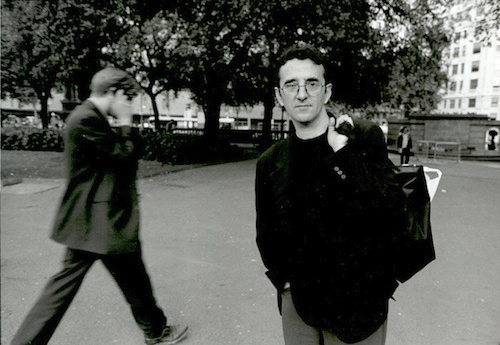The Dream of Romantic Dogs
(Caution: you may need some further context to understand this post, since I’m continuing from a previous report in which I cite a conclusion of T.H. White's King Arthur marching toward his certain death: namely, that the hope of organizing our politics and our society to produce a world without borders lies in culture.)
Still, if you only read that parenthetical paragraph, you're pretty much all caught up. But from here, I want to note that White's King Arthur emphasizes literary discourse as a feature of the culture that he will believes will produced a world without borders.
Of course, our culture has other problems besides just the existence of borders, and we can't assume that literary discourse will resolve that problem, let alone address the other challenges we face. For more on those (often culturally-embedded) challenges, I can recommended reading M. David Bailey's Fixing Broken Robots, or viewing "HyperNormalisation 2016" (from the start-time at which I received myself) a documentary forwarded to me from a former professor that I've recently enjoyed. Personally, I summarized American culture to an Italian friend as follows (auto-translated into English):
...very materialistic, as obsessed with how much money someone has, and moreover, the country is literally turning into a giant landfill. I will not bore you with statistics, but when someone calls Americans "materialistic," they should mean "intent on turning matter into garbage" ... they want to transform matter (like minerals and coal) into garbage [polluting land, air, and sea] ... our culture is very wasteful and willingly (and almost maniacally) destroys its environment.
Needless to say, that hardly covers cultures around the globe, what challenges they face, or, indeed, what obstacles they constitute to manifesting a world without borders. But if you'll allow me a moment to narrow my scope, I'd like to offer an example of literature that sustains this discourse, and that to some (like myself) offers some reassurance in the possibility of realizing that dream.
(Of course, you're reading @riotdog, so the title of this example should hardly surprise you.)
The Romantic Dogs
Back then, I’d reached the age of 20
and I was crazy.
I’d lost a country
but won a dream.
As long as I had that dream
nothing else mattered.
Not work, not praying,
not studying in the morning light
alongside the romantic dogs.
And the dream lived in the void of my spirit.
A wooden bedroom,
cloaked in half-light,
deep in the lungs of the tropics.
And sometimes I’d retreat inside myself
and visit the dream: a statue eternalized
in liquid thoughts,
a white worm writhing
in love.
A runaway love.
A dream within another dream.
And the nightmare telling me: you will grow up.
You’ll leave behind the images of pain and of the labyrinth
and you’ll forget.
But back then, growing up would have been a crime.
I’m here, I said, with the romantic dogs
and here I’m going to stay.
<
Alright, maybe you need a little more context to understand why Bolaño writes that he'd "lost a country." Via Wikpedia (as of 4:53pm GMT, 19 Dec 2017): "A key episode in Bolaño's life, mentioned in different forms in several of his works, occurred in 1973, when he left Mexico for Chile to 'help build the revolution' by supporting the socialist democratic government of Salvador Allende. After Augusto Pinochet's right wing supported military coup against Allende, Bolaño was arrested on suspicion of being a 'terrorist' and spent eight days in custody."

(Interestingly, to the Bolaño devotee, "since 2009 Bolaño's Mexican friends from that era have cast doubts on whether he was even in Chile in 1973 at all." Perhaps instead he'd set off in search of Cesárea Tinajero?)
But with all that said, let's look at this from a purely political perspective: even in loss, Bolaño "won a dream" with which "nothing else mattered." Though "the nightmare" tells him that he'll forget the dream, he knows his own desire: fidelity to the dream, a life "with the romantic dogs"; and, of course, what romantic ever abandons a dream?
I'm reaching the end of my relevant analysis here. Nonetheless, I ask (if you follow my rants) that you keep this idea in mind, and that, if we share the goal of a world without borders and you should ever feel discouraged, please, remember the dream of "The Romantic Dogs," and stay with them.
Best (as always),